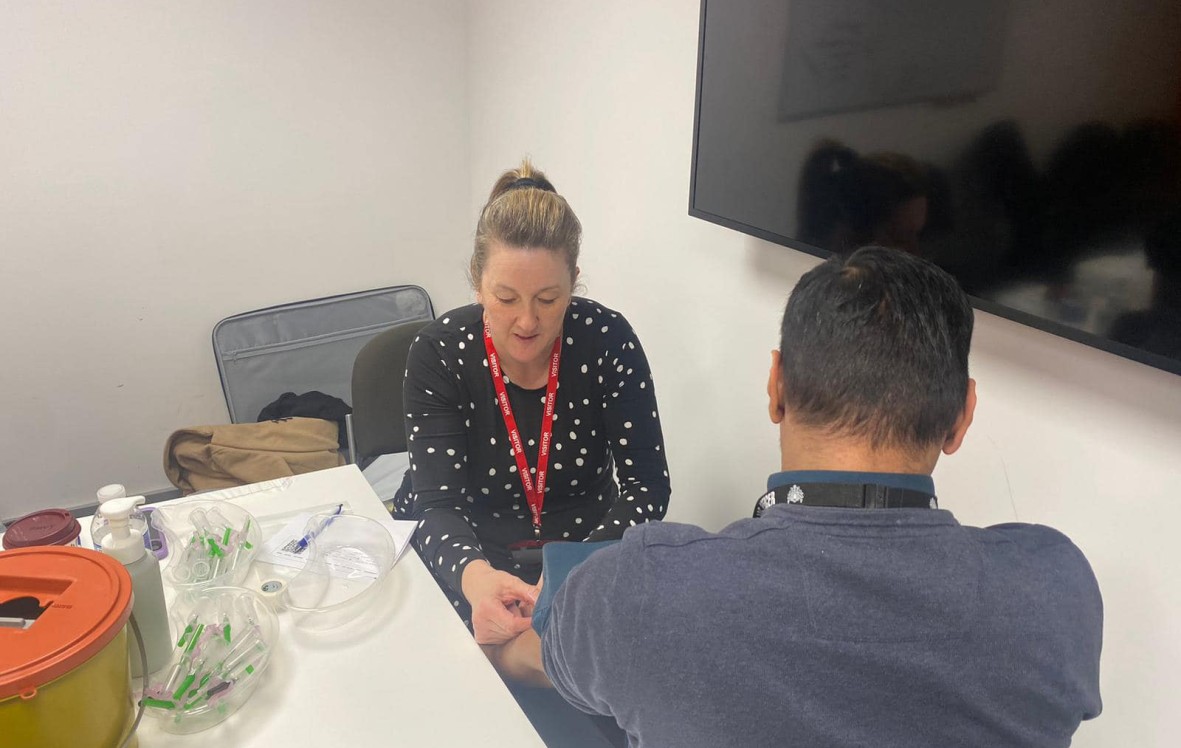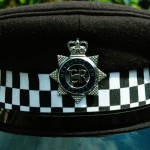Metropolitan Police officers have spoken about the ease and speed of painless testing for prostate cancer - that could save their lives.
More than 100 officers over the age of 50 attended PSA screening at the Cobalt Square Police Station in Lambeth in February, as part of a trial that could help them detect prostate cancer early.
The testing was provided by the Metropolitan Police Federation with the support of Metfriendly.
Prostate cancer is the most common cancer in men and one in eight men will be diagnosed within their lifetime.
There is currently no national screening programme for prostate cancer.
As part of the day, phlebotomists from the Graham Fulford Charitable Trust held a clinic which enabled officers to get a blood sample tested for levels of prostate-specific antigen in their blood. The results, which took 48 hours, were graded red, amber or green, and were emailed to officers, who were then advised whether the level is normal, whether they need to see a doctor and how long they should wait to have another.
Phlebotomist Samantha Horton said: “Events like this are important because it’s vital to get early detection, which gives you a much higher rate of success at beating the cancer. Also, most people these days know somebody that’s either got or being treated or has died from prostate cancer. This is as important as women having breast screening and smears, so it’s imperative that men take this on board.”
Officers welcomed the testing that was organised by Federation Operations Secretary. Steve George.
PC Duncan Thorne decided to get tested following the recent news around HM the King’s diagnosis. The 75-year-old recently underwent treatment for an enlarged prostate, although the Palace said his diagnosis was not prostate cancer.
PC Thorne said: “If people don’t do it then they’re just neglecting their own health. It was very easy. A couple of minutes and it’s done; with no pain. This was my first test but I will definitely be doing more.”
Det Insp Shaun Fitzgerald on the MIT Team at Hendon who attended the clinic said the test was “remarkably quick and very straightforward.”
More than 52,000 men are diagnosed with prostate cancer every year on average – that's 144 men every day. It is a pressing issue especially for those from an Afro-Caribbean background.
Lyndsey Griffin, a phlebotomist from Graham Fulford Trust, said: “It’s vitally important that the Afro-Caribbean community are taking these opportunities to have the blood test. They are at higher risk and, from my experience, they are the communities that aren’t attending these events.”
Det Sgt Andy Swindells, from the Robbery and Proactive in team Westminster, visited the clinic having recently attended the funeral of a former police officer who died from prostate cancer at 65. He said: “I don’t like having blood taken but it was probably the easiest I’ve ever had it. It took ten seconds, in and out.”
The chances of developing prostate cancer increase as you get older. Most cases develop in men aged 50 or older. Men whose father or brother were affected by prostate cancer are at slightly increased risk themselves.
Steve said he arranged the clinic after members, inspired by similar programmes in other forces, asked him to do the same.
He said: “When I looked into it, I became educated almost unwittingly into how prostate cancer can affect men and how significant it is for so many men. The Metropolitan Police already runs some events for women’s health, but I wasn’t aware that they ran any for men.”
Steve added: “I was pleased because the event was oversubscribed within 90 minutes of the email going out. We’ve had a good attendance rate and I’m hoping that, based on
the predicted success of this event, we’ll be able to look to do it again in the future. And using this event as a case study, I’m hoping I might be able to persuade the MPS to put their hand in their corporate pocket and fund some of this for our colleagues in the future.”
Det Sgt Pete Collett, from the ANPR department, who also attended the clinic, said: “It was really quick and easy. It’s just a little blood sample and my dad’s had problems in the past with his prostate, so it’s a no-brainer to get tested.”
Det Sgt Neil Perham added: “This has been an amazing service. It was so easy to book and even easier to come. It took seconds and the staff were brilliant.”
PC John Trebess, who attended Cobalt Square for his first test, said: “It was a seriously easy test; I hardly felt the needle at all and it only took a couple of seconds.”












